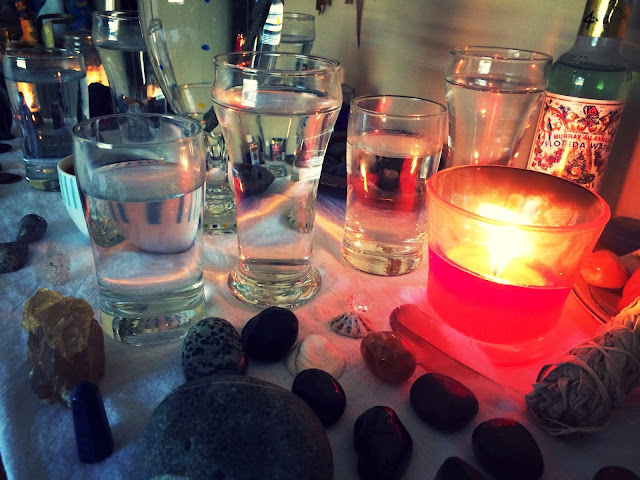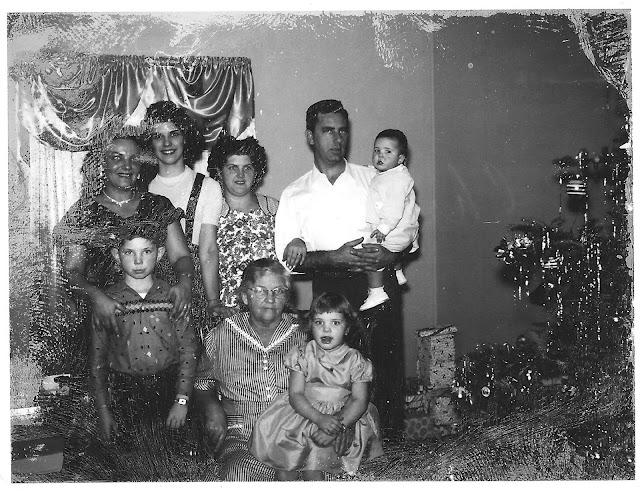My father's family emigrated to the United States from Denmark and the North Frisian island of Amrum at the turn of the century. As a child I recall my aunt regaling us with stories of our "Viking ancestors," and how she named her boat after the town where my great-grandfather was born - Norddorf. She would brag about my multilingual great-grandmother who could speak Öömrang, Danish, German, and English. She told about how her father - my grandfather (who died when I was quite young) - had loved the ocean so much that he had named his paint workshop the "Albatross" after that legendary seabird. I remember standing by the sea one evening with my father when I was a young child, as he taught me about the well-known mariner's adage: "red sky at night, sailor's delight; red sky in morning, sailor's take warning."
The ocean seems to have settled into the veins of our family, for the most part, though to be honest I was always a bit intimidated by its strength and wildness. I recall swimming for hours on end in the Atlantic waves, and it seemed that every year I would have some close encounter with drowning. I was pinched by crabs (though I enjoyed that a little bit, despite the blood). As an adult I wasn't always a big fan of beach days - the ubiquitous sand, the lugging of every imaginable item required to have a semi-comfortable beach experience, the periodic slathering on of sunscreen (mixed with sand, usually, for a nice, accidental exfoliation).
 |
| My altar space for Njörd |
But the sea is so much more than that. As I connected more intimately with my family line, I found myself connecting more to Njörd as well. I felt a difficult-to-describe intimacy, like getting to know a long lost grandfather who is so glad to know you. I imagine Njörd's influence in my ancestors' lives, even when they may not have recognized it - Vanir god of mariners, islanders, sea people. My family.
Last year I began to celebrate an adapted version of the North Frisian/South Danish yearly ritual of Biikebrennen, a bonfire holiday of sorts that takes place on February 21st. It is a tangible way to honor my family history, to reconnect the threads that are often lost during the transformative process of immigration. To assemble my altar space for Njörd I had ordered a statue from Etsy, and it had been lost in the mail. On the morning of February 21st I went to fetch the mail, as usual, and found a small item from England. It was my Njörd figurine that had been mis-delivered. The recipient had opened the package, realized that it was not for them (and also probably that it was not particularly valuable), and had hand-delivered it to our box, right in time (unbeknownst to them) for our first Biikebrennen celebration.
 |
| Njörd statue in Heiligenhafen, Germany (Schleswig-Holstein) |
Over time "beach days" have transformed into valuable moments to "speak" to Njörd. When I stand at the coast, I am often filled with the thrill of adventure - the impulse to hop into a vessel and head out into open ocean. The Atlantic is not a barrier that keeps me confined to this continent - rather it is a salty road that leads back to the shores of Amrum, the coast off of Ribe, Denmark, my ancestral home.




Comments
Post a Comment